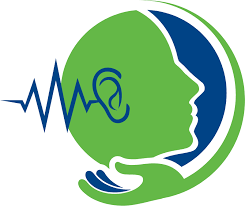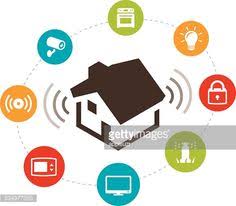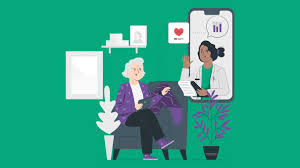Noting from studies how easily AI-powered chatbots can be manipulated to craft convincing phishing emails.
Connected care in the home has the potential to address both the preferences of older adults and the societal imperative to care for a rapidly growing aging population
A practical guide to understanding autonomous AI agents, why they matter for healthcare governance, and what to do about them.
The growing ecosystem of devices and products serving peoples’ health and well-being shows us that innovators already see the opportunity to serve the fast-growing market for self-care among people 50 years of age and up.
For nearly twenty years, one thing has felt inevitable: when boomers reach “old age,” senior living demand will surge. And yet ..


 Years ago, tech for older adults became a unique category – is it still? Today most older adults want to use all consumer technology, aka AllTech. Why? Because their families and peers do so, for one, and second, (or maybe first), they do not consider themselves old. A puzzle framework evolved over the years that can encompass ‘AllTech’ but adds supportive tech for those with specific limitations like
Years ago, tech for older adults became a unique category – is it still? Today most older adults want to use all consumer technology, aka AllTech. Why? Because their families and peers do so, for one, and second, (or maybe first), they do not consider themselves old. A puzzle framework evolved over the years that can encompass ‘AllTech’ but adds supportive tech for those with specific limitations like  Census data shows what models, samples and estimates cannot. Actual responses surveying access to technology can highlight regional gaps in broadband access – despite all the talk about broadband availability ‘everywhere’ and multiple federal programs over the years trying to make it so. The
Census data shows what models, samples and estimates cannot. Actual responses surveying access to technology can highlight regional gaps in broadband access – despite all the talk about broadband availability ‘everywhere’ and multiple federal programs over the years trying to make it so. The  Kudos to the Forbes Technology Council! Their post,
Kudos to the Forbes Technology Council! Their post,  Future staffing demand will force industry to rethink care strategies. According to BLS, the industry will need
Future staffing demand will force industry to rethink care strategies. According to BLS, the industry will need  Future staffing demand will force industry to rethink care strategies. According to BLS, the industry will need
Future staffing demand will force industry to rethink care strategies. According to BLS, the industry will need  Lifespan versus healthspan – a worrisome difference of 12.4 years in the US. While many older adults may live longer, well into their 80’s, they may be living with chronic diseases such as diabetes, heart disease and cancer. That difference, known as healthspan, may be as much as 12.4 years in the US, the worst globally, according to
Lifespan versus healthspan – a worrisome difference of 12.4 years in the US. While many older adults may live longer, well into their 80’s, they may be living with chronic diseases such as diabetes, heart disease and cancer. That difference, known as healthspan, may be as much as 12.4 years in the US, the worst globally, according to  Data about care is becoming the backbone of home care best practice. In the past (and in some current settings) the home care worker has kept a book in the home for record keeping, bringing it in periodically to get paid. Today, organizations can use captured information about the home care situation, combining it with information aggregated from other clients or individual care recipient history. Data and the governance procedures to maintain its quality and security will, like other uses of AI, become the foundation for realizing its benefits in home care.
Data about care is becoming the backbone of home care best practice. In the past (and in some current settings) the home care worker has kept a book in the home for record keeping, bringing it in periodically to get paid. Today, organizations can use captured information about the home care situation, combining it with information aggregated from other clients or individual care recipient history. Data and the governance procedures to maintain its quality and security will, like other uses of AI, become the foundation for realizing its benefits in home care. Executives see the possibilities for AI in home care. Home care and home health care are labor intensive industries. Hands-on work is historically preceded and followed by paper-based documents and tracking tools. However, it is increasingly likely that home care companies will move quickly past ‘Year One’ of AI as the labor-saving benefits are seen and realized. Interviewees, including agencies and tech firms, note the changes underway. Some are engaged in various pilot projects of AI-enabled tools, others are doing implementations, still others are already deployed. For example, report discussions surfaced the following:
Executives see the possibilities for AI in home care. Home care and home health care are labor intensive industries. Hands-on work is historically preceded and followed by paper-based documents and tracking tools. However, it is increasingly likely that home care companies will move quickly past ‘Year One’ of AI as the labor-saving benefits are seen and realized. Interviewees, including agencies and tech firms, note the changes underway. Some are engaged in various pilot projects of AI-enabled tools, others are doing implementations, still others are already deployed. For example, report discussions surfaced the following: